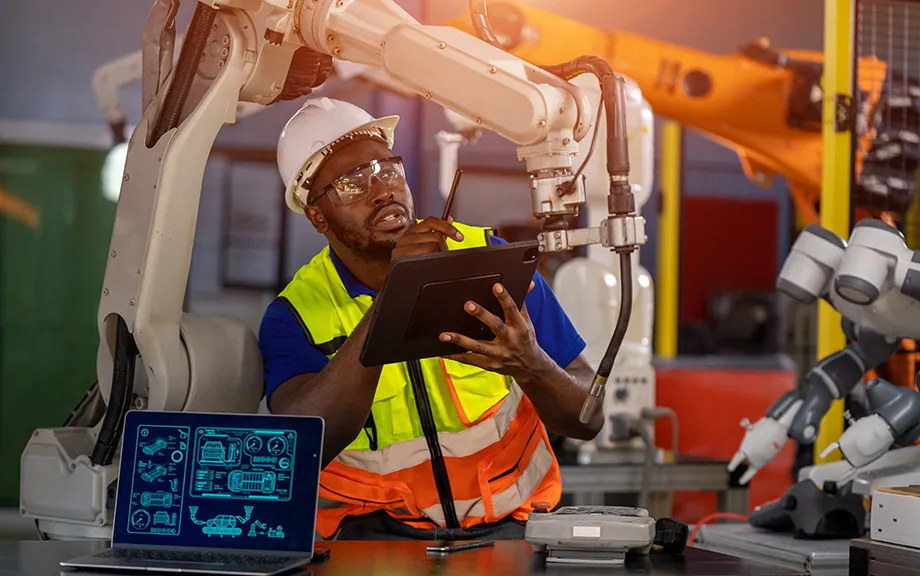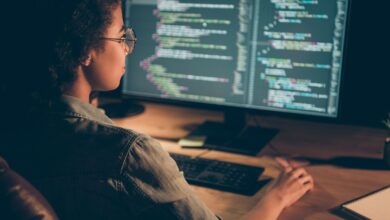Major Developments in Artificial Intelligence and Their Impact on the Job Market
Major Developments in Artificial Intelligence and Their Impact on the Job Market

Major Developments in Artificial Intelligence and Their Impact on the Job Market
Artificial Intelligence (AI) is one of the most transformative technologies of the 21st century. In recent years, it has rapidly advanced, reshaping industries, automating tasks, and revolutionizing how we work. As we step further into 2025, AI is no longer a futuristic concept—it’s an active force changing the global workforce in real time.
This article explores the key developments in AI and how they are affecting the job market across sectors.
Key Developments in Artificial Intelligence
1. Generative AI
One of the most significant breakthroughs has been the rise of Generative AI, which includes technologies like ChatGPT, DALL·E, and Google Gemini. These tools can generate human-like text, images, audio, and even video content.
Applications:
- Content creation (writing, design, code)
- Customer service (chatbots and virtual assistants)
- Education and tutoring
- Product development and prototyping
2. AI-Powered Automation
AI is automating both routine and complex tasks across industries. From robotic process automation (RPA) in finance to autonomous vehicles in logistics, AI is streamlining operations.
Examples:
- Automated data entry and analysis
- Self-checkout systems in retail
- AI-driven manufacturing robots
3. Natural Language Processing (NLP)
NLP has drastically improved how machines understand and respond to human language. This advancement powers virtual assistants, translation apps, transcription services, and sentiment analysis tools.
Impact:
- Enhances customer service quality
- Improves accessibility and communication
- Enables real-time multilingual support
4. Machine Learning and Predictive Analytics
Machine learning algorithms now analyze massive data sets to forecast trends, customer behavior, and potential risks.
Used in:
- Healthcare (predictive diagnostics)
- Marketing (targeted campaigns)
- Finance (fraud detection and trading)
5. AI in Robotics
The integration of AI with robotics has led to intelligent machines capable of performing physical tasks with minimal human intervention.
Used in:
- Warehousing and supply chain management
- Elderly care and assistance robots
- Precision agriculture
Impact of AI on the Job Market
The rise of AI brings both opportunities and challenges. While it creates new roles and enhances productivity, it also leads to job displacement in certain sectors.
1. Job Displacement in Repetitive Roles
AI is replacing jobs that involve repetitive, rule-based tasks. Roles in data entry, customer support, and routine administrative work are especially vulnerable.
Affected industries:
- Manufacturing
- Call centers
- Transportation (due to autonomous vehicles)
2. Creation of New Job Categories
As AI grows, it’s generating demand for new skills and professions that didn’t exist a few years ago.
Emerging roles:
- AI and machine learning engineers
- Data scientists and AI ethicists
- Prompt engineers (for generative AI models)
- AI trainers and explainability analysts
3. Changing Skill Requirements
AI is shifting the focus toward digital literacy, critical thinking, and adaptability. Workers now need to understand how to work alongside AI, not compete with it.
In-demand skills:
- Data analysis and interpretation
- AI system supervision
- Cybersecurity and data privacy
- Creative thinking and emotional intelligence
4. Enhanced Productivity and Hybrid Work
AI-powered tools are helping employees automate routine tasks, leaving more room for creativity and strategic thinking. Tools like AI writing assistants, code generators, and scheduling bots are boosting productivity in remote and hybrid work environments.
5. Ethical and Regulatory Considerations
As AI systems become more powerful, there’s a growing need for professionals focused on AI ethics, fairness, and compliance. Governments and organizations are hiring AI policy experts and compliance officers to ensure responsible AI use.
Conclusion
Artificial Intelligence is reshaping the future of work. While some jobs may be lost to automation, countless new opportunities are emerging for those ready to adapt. The key to thriving in the AI-driven economy is lifelong learning, digital skill development, and embracing change.
Rather than replacing humans, AI is best seen as a tool that augments human capabilities—making the workforce more efficient, creative, and future-ready.




